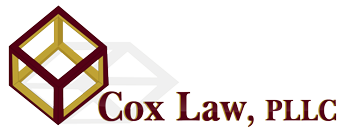(a) Use of Depositions. At the trial or upon the hearing of a motion or an interlocutory proceeding, any part or all of a deposition may be used against any party who was present or represented at the taking of the deposition or who had reasonable notice of it so far as admissible under the rules of evidence applied as though the witness were then present and testifying in accordance with any of the following provisions:
(1) Any deposition may be used by any party for the purpose of contradicting or impeaching the testimony of the deponent as a witness or for any purpose permitted by the Florida Evidence Code.
(2) The deposition of a party or of anyone who at the time of taking the deposition was an officer, director, or managing agent or a person designated under rule 1.310(b)(6) or 1.320(a) to testify on behalf of a public or private corporation, a partnership or association, or a governmental agency that is a party may be used by an adverse party for any purpose.
(3) The deposition of a witness, whether or not a party, may be used by any party for any purpose if the court finds: (A) that the witness is dead; (B) that the witness is at a greater distance than 100 miles from the place of trial or hearing, or is out of the state, unless it appears that the absence of the witness was procured by the party offering the deposition; (C) that the witness is unable to attend or testify because of age, illness, infirmity, or imprisonment; (D) that the party offering the deposition has been unable to procure the attendance of the witness by subpoena; (E) upon application and notice, that such exceptional circumstances exist as to make it desirable, in the interest of justice and with due regard to the importance of presenting the testimony of witnesses orally in open court, to allow the deposition to be used; or (F) the witness is an expert or skilled witness.
(4) If only part of a deposition is offered in evidence by a party, an adverse party may require the party to introduce any other part that in fairness ought to be considered with the part introduced, and any party may introduce any other parts.
(5) Substitution of parties pursuant to rule 1.260 does not affect the right to use depositions previously taken and, when an action in any court of the United States or of any state has been dismissed and another action involving the same subject matter is afterward brought between the same parties or their representatives or successors in interest, all depositions lawfully taken and duly filed in the former action may be used in the latter as if originally taken for it.
(6) If a civil action is afterward brought, all depositions lawfully taken in a medical liability mediation proceeding may be used in the civil action as if originally taken for it.
(b) Objections to Admissibility. Subject to the provisions of rule
1.300(b) and subdivision (d)(3) of this rule, objection may be made at the trial or hearing to receiving in evidence any deposition or part of it for any reason that would require the exclusion of the evidence if the witness were then present and testifying.
(c) Effect of Taking or Using Depositions. A party does not make a person the party’s own witness for any purpose by taking the person’s deposition. The introduction in evidence of the deposition or any part of it for any purpose other than that of contradicting or impeaching the deponent makes the deponent the witness of the party introducing the deposition, but this shall not apply to the use by an adverse party of a deposition under subdivision (a)(2) of this rule. At the trial or hearing any party may rebut any relevant evidence contained in a deposition whether introduced by that party or by any other party.
(d) Effect of Errors and Irregularities.
(1) As to Notice. All errors and irregularities in the notice for taking a deposition are waived unless written objection is promptly served upon the party giving the notice.
(2) As to Disqualification of Officer. Objection to taking a deposition because of disqualification of the officer before whom it is to be taken is waived unless made before the taking of the deposition begins or as soon thereafter as the disqualification becomes known or could be discovered with reasonable diligence.
(3) As to Taking of Deposition.
(A) Objections to the competency of a witness or to the competency, relevancy, or materiality of testimony are not waived by failure to make them before or during the taking of the deposition unless the ground of the objection is one that might have been obviated or removed if presented at that time.
(B) Errors and irregularities occurring at the oral examination in the manner of taking the deposition, in the form of the questions or answers, in the oath or affirmation, or in the conduct of parties and errors of any kind that might be obviated, removed, or cured if promptly presented are waived unless timely objection to them is made at the taking of the deposition.
(C) Objections to the form of written questions submitted under rule 1.320 are waived unless served in writing upon the party propounding them within the time allowed for serving the succeeding cross or other questions and within 10 days after service of the last questions authorized.
(4) As to Completion and Return. Errors and irregularities in the manner in which the testimony is transcribed or the deposition is prepared, signed, certified, or otherwise dealt with by the officer under rules 1.310 and 1.320 are waived unless a motion to suppress the deposition or some part of it is made with reasonable promptness after the defect is, or with due diligence might have been, discovered.
Committee Notes
1972 Amendment. Derived from Federal Rule of Civil Procedure 32 as amended in 1970. Subdivisions (a), (b), and (c) are former rules 1.280(d), (f), and (g) respectively. Subdivision (d) is derived from the entire former rule 1.330.
1998 Amendment. Subdivision (a)(1) was amended to clarify that, in addition to the uses of depositions prescribed by these rules, depositions may be used for any purpose permitted by the Florida Evidence Code (chapter 90, Fla. Stat.). This amendment is consistent with the 1980 amendment to Rule 32 of the Federal Rules of Civil Procedure.
Click Here to read more or browse blog articles related FRCP Rule 1.330

